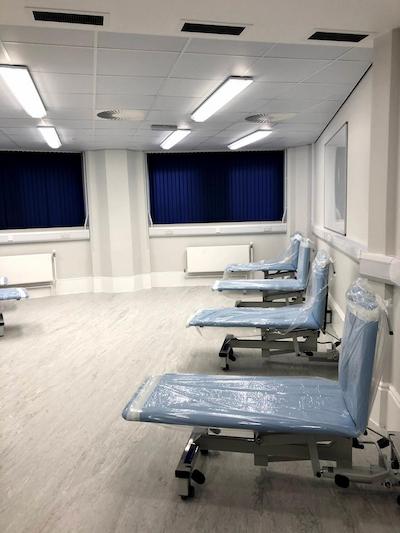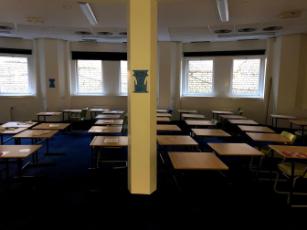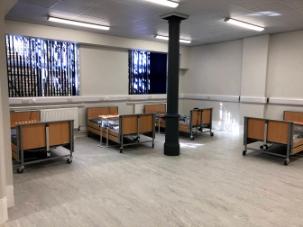School of Health Sciences celebrates the opening of new multi-purpose simulation suite

The School of Health Sciences are proud to announce the latest addition to their existing simulation facilities - The Florence Nightingale Simulation Suite.
Located in the basement of the Whelan Building (formerly the old Liverpool Infirmary), the Florence Nightingale Suite has been transformed from dark and dingy classrooms into a suite of flexible, dynamic, clinical teaching spaces.
Before

After

These new facilities have been funded by monies awarded following a successful bid to the Office for Students, providing two ward areas, a skills suite, a therapy kitchen and an interview and assessment suite, all of which can be used by students undertaking our portfolio of health sciences programmes.
Over the coming months, a programme of multi-professional simulation activities will be developed and delivered, giving students a ‘near to real life’ experience, to supplement their clinical practice and prepare them for their roles as future healthcare professionals.
Denise Prescott, Dean of the School of Health Sciences expressed her thanks to Chris French from HLS Technology, Infrastructure & Environment Directorate, for his support and guidance with the initial bid for funding, and to all those who have been actively involved in the building work, from planning through to completion.
“In alignment with the national drive, to meet both current and future NHS workforce requirements, the School of Health Sciences is experiencing a period of rapid growth with increasing numbers of undergraduates across all programmes, and an expanding portfolio of postgraduate provision. This has been reinforced by a 23% increase in applications to programmes across the school over the past twelve months, indicating a healthy demand for all of our programmes.
Ultimately, these new purpose-built facilities will help prospective Nursing and Allied Health Professionals to develop and consolidate their knowledge and skills, ensuring that they become the safe and competent healthcare practitioners of the future.”